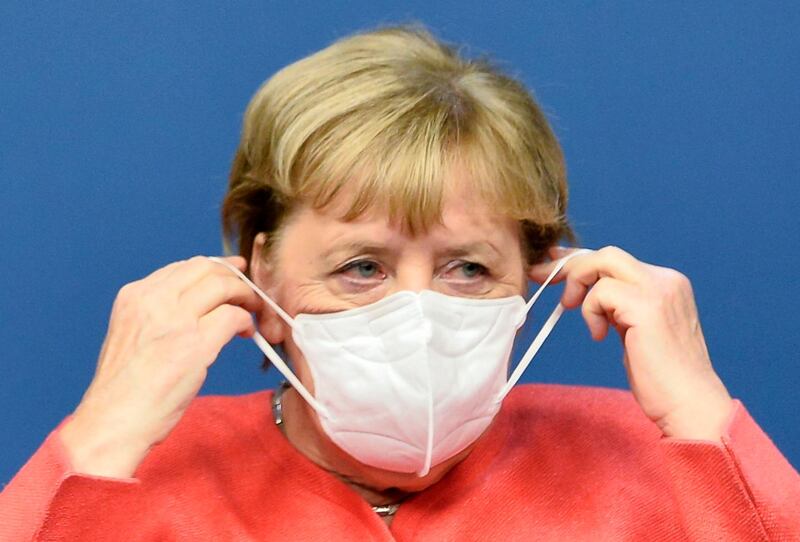Chancellor Angela Merkel said on Friday that the drastic limits placed on people's freedoms to curb the coronavirus earlier this year had weighed heavily on her, bringing back memories of life in surveillance-riddled East Germany.
Speaking on the eve of the 30th anniversary of German reunification, Mrs Merkel told the RND newspaper group she was acutely aware of the sacrifices she was asking of Germans when the country went into lockdown in March.
"That I had to tell people they could only be out in the street in a single household or just two persons at a time, that no events could take place, that children could not visit their parents in care homes -- these were serious restrictions."
A pastor's daughter who grew up behind the Iron Curtain in the communist German Democratic Republic (GDR), Mrs Merkel, 66, said she reflected a lot on her childhood and youth when making those tough calls in the early days of the pandemic.
"My background has shaped me," she said, recalling "the longing for freedom during life in the GDR".
But the veteran leader, who as a young woman rejected an offer to inform for the Stasi secret police, said her experiences in former East Germany also prepared her for difficult times.
"We learned to improvise and we always managed well despite many shortages. These are skills that are useful today too."
Three decades on, Germany is planning muted celebrations to remember the historic unification of the communist East with the capitalist West, as the nation battles an uptick in coronavirus infections.
The Berlin Wall fell in a peaceful revolution on November 9, 1989, paving the way for the formal reunification of Germany on October 3, 1990.
"Until the fall of the Wall, I never thought that German reunification would happen in my lifetime," said Mrs Merkel, who plans to step down next year.
"When it did become reality, it was a wonderful experience that taught me that change can be good, and change for the better is possible."






